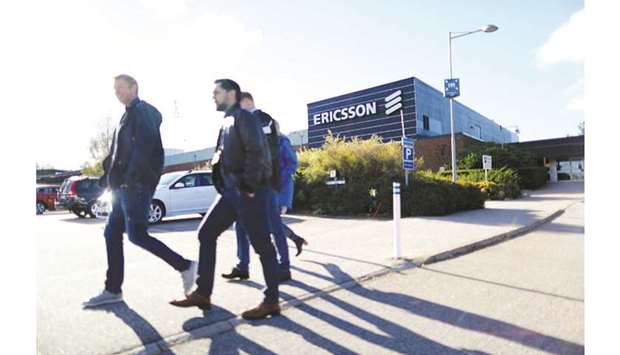A unit of Ericsson AB pleaded guilty to foreign bribery and the parent company agreed to pay more than $1bn to resolve a long-running US corruption investigation involving payoffs in Asia and the Middle East.
The Stockholm-based company admitted to a years-long campaign of corruption aimed at solidifying its grip on the telecommunications business, US Attorney Geoffrey S Berman in Manhattan said in announcing the settlement that outlined tens of millions of dollars in illicit payments in five countries.
“Through slush funds, bribes, gifts and graft, Ericsson conducted telecommunications business with the guiding principle that ‘money talks,’” Berman said in a written statement announcing the settlement.
From 2000 to 2016, Ericsson conspired with others to violate the US Foreign Corrupt Practices Act, paying bribes, falsifying books and records and failing to implement reasonable internal accounting controls, the Justice Department said. The company bribed government officials through third-party agents and consultants, it said.
The settlement includes a $520mn criminal penalty imposed by the US Justice Department and a civil payment of about $540mn to the Securities and Exchange Commission. As part of a deferred-prosecution deal, an Egyptian subsidiary of the company pleaded guilty to a conspiracy charge.
“This is a reflection of some hugely embarrassing and unacceptable behaviour in the past, and of course that is something we as a company are ashamed of and I personally am ashamed of,” Ericsson’s chief executive officer Borje Ekholm said in a phone interview.
“But the settlement also allows us to put an end to a very long and wide-ranging process so now we can move forward and build a much stronger company for the future.” The company will add an independent monitor to ensure its compliance with anti-bribery laws as part of the settlement in federal court in New York, which had been expected.
The government, in its settlement announcement after the close of US markets, outlined bribery spanning the globe.
By way of a subsidiary, the company made approximately $2.1mn in bribe payments between 2010 and 2014 to high-ranking government officials in Djibouti to obtain a contract with the state-owned telecommunications company, it said. An Ericsson subsidiary entered into a sham contract and approved fake invoices to conceal the payments, it said.
In China, Ericsson subsidiaries caused tens of millions of dollars to be paid to consultants and service providers over 16 years through 2016, the government said. Some of that went to fund a travel expense account in China that covered gifts, travel and entertainment for foreign officials, it said. The government outlined $45mn in off-the-book payments to create slush funds to win business in Indonesia, and described other off-the-book schemes in Vietnam and Kuwait aimed at winning business.
In September, Ericsson said it had set aside 12bn kronor ($1.2bn) to cover US penalties. Ericsson has said it’s been cooperating with US investigators since 2013.
The Justice Department said Ericsson earned a 15% reduction in penalties for its cooperation. However, it said Ericsson didn’t receive full credit for cooperation because it didn’t disclose some allegations of corruption, didn’t produce certain documents and failed to take adequate disciplinary measures against some employees.

Workers walk outside the Ericsson factory in Boras, Sweden. A unit of Ericsson pleaded guilty to foreign bribery and the parent company agreed to pay more than $1bn to resolve a long-running US corruption investigation involving payoffs in Asia and the Middle East.
